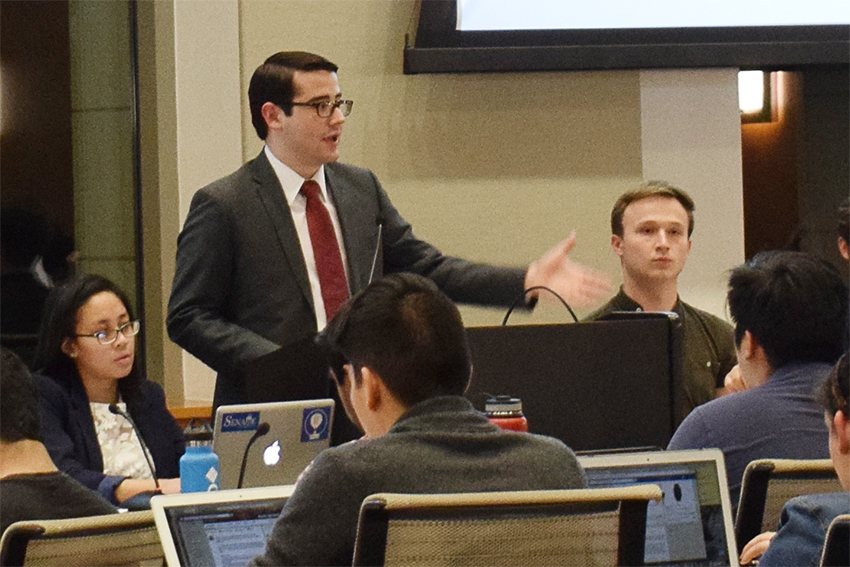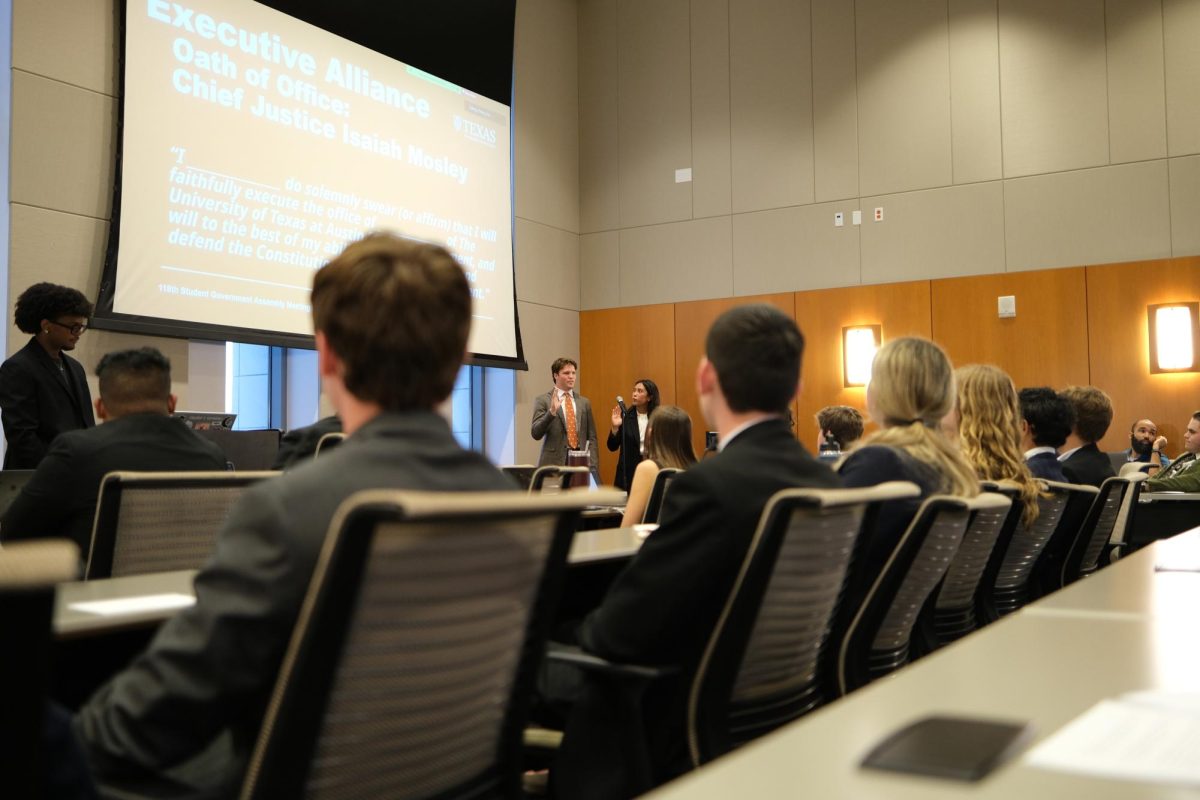The Senate of College Councils wrapped up its semester Thursday as UT President Gregory Fenves spoke to the general assembly about campus issues. The general assembly also voted in favor of a resolution supporting affirmative action.
Fenves discussed the Young Conservatives of Texas bake sale, plans for academics at the University and sanctuary campuses during his 30-minute question-and-answer with the
Senate representatives.
“I can’t listen to everybody on campus because of the numbers, but talking to student leaders regularly is very important for me to understand what is happening on campus,” Fenves said.
Fenves called the Young Conservatives of Texas anti-affirmative action bake sale a debate of issues and said it was something the University would regulate to ensure it remained within First Amendment rights.
“We do not determine what content is acceptable and what content is unacceptable within the bounds of free speech,” Fenves said. “What we will be doing — and this is a very delicate legal issue that has to do with the constitution and free speech — we don’t look at content, but we do look at action.”
Fenves then said future incidents of the same nature as the bake sale would be regulated to ensure they remained acceptable, and if they were unacceptable, the University would take action.
“Actions that violate rights and violate laws, we will take action on,” Fenves said. “If it is based on bias and discrimination, then we will take even stronger action. What happened with the Young Conservatives was within a free speech zone, and there was a debate about that, and that’s what happens and what should happen within a free speech zone. The boundaries for that are not precisely defined, but it’s something we will look at on a case-by-case basis.”
Following the discussion with Fenves, The Senate voted unanimously in favor of Joint Resolution 1603 supporting UT’s affirmative action policy. The Graduate Student Assembly had previously voted in favor of the resolution.
“Our angle is supporting students on this campus who got here under these policies and encouraging future use of these policies to ensure we have a diverse campus,” Senate President Sergio Cavazos said. “A lot of the academic conversations that go on [in the classroom] are really enriched by the different backgrounds we have on campus.”
Psychology freshman Te’lon Toliver said she agreed with the legislative student organization’s support of the policy and that student support is more important than
government support.
“Affirmative action is a good thing, it may have its faults, but ultimately it helps the University,” Toliver said. “When students say they support it, it means a lot more. City officials and the Supreme Court can always say they support or don’t support something, but because this is directly affecting us, it matters a lot more.”



















